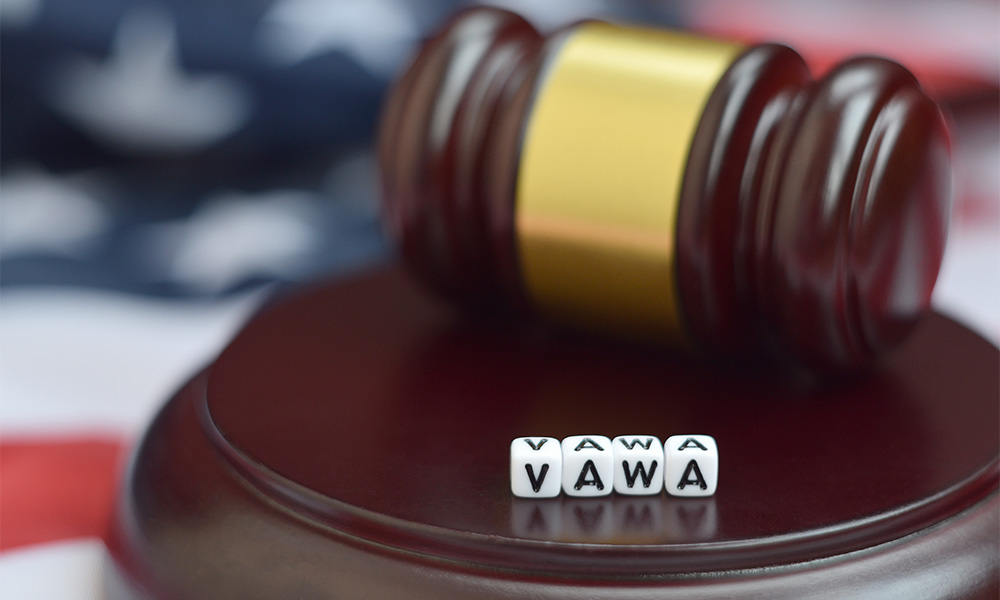What misdemeanors are considered domestic violence by VAWA?
Domestic violence is one of the most common misdemeanors committed against immigrants in the United States.
However, victims barely know their rights and how US laws can help them.
For this reason, at Quiroga Law Office, PLLC, we will tell you what you should know about domestic violence, what are the misdemeanors that qualify to apply for immigration benefits through VAWA, and how to act if you are a victim of domestic violence.
What is domestic violence?
It is an act of threatening and intentional use of force against a person, resulting in physical, psychological, emotional harm, and even death.
Domestic violence is also known as domestic abuse or family violence, is a serious situation that affects more people than records show.
Frequently, people associate domestic violence with physical abuse, battering, and other actions that cause harm, and can be easily observed (contusions, bruises, fractures, etc.)
However, there are other types of abuse and mistreatment that also qualify as domestic violence:
- Sexual violence. Includes any type of sexual assault.
- Emotional violence. Threats, insults, humiliations, and controlling behaviors over the victim, for example, telling her what to wear, how to behave, and forbidding her to see her family and friends.
- Economic violence. When the abuser controls access to the victim’s money, takes it away, or denies it.
Regarding this situation, in 2000, the US Congress passed the Violence Against Women Act (VAWA)
You must keep in mind that VAWA is not only for women but also for anyone who is a victim of domestic violence.
Men and women of any age and economic or educational level may be victims, and VAWA protects them equally.
VAWA allows spouses, children, and parents of citizens, as well as spouses and children of lawful permanent residents (Green Card holders), to apply for immigration benefits without the abuser knowing.
Also read: What is considered domestic violence in the United States?
VAWA qualifying misdemeanors
These are some of the most common misdemeanors classified as domestic violence:
- It is when the abuser hits the victim, even when no weapon or object is used. Threatening to hurt is also aggression.
- Sexual assault. When the abuser uses force to abuse another person without her consent.
- It happens when one person repeatedly follows or frightens another one, threatening, causing fear and concern.
- Causing the death of another person.
- When there is the intention to annoy and bother a person, even when insulting, embarrassing, touching, or battering.
- Illegal retention. It is putting a person in danger of injury by keeping her locked up and not letting her out, subduing her against her will.
- It is when the aggressor uses force, threats, or deception and takes the victim to another place, demanding money for her ransom.
Besides, other actions also qualify as abuse and are valid for applying for VAWA and its benefits:
- Kicking, pushing, hair pulling, spitting, biting, and verbal insults.
- Threaten to take the children away.
- Retaining documents (passport, visa).
- Throwing objects with the intention of hurting or intimidating.
- Blackmailing with resolving immigration status in exchange for money.
- Interfere with an immigration process.
- Threatening to report a person to immigration law enforcement.
- Despise and humiliate with insults.
If you are, were, or have been a victim of any of these crimes, you can apply for VAWA and resolve your immigration status in the country.
What to do if you are a victim of domestic violence?
If you are a victim of any type of violence, the first thing to know is that you are not alone.
Most cases of domestic violence go unreported, making it difficult for authorities to do their job and to enforce justice.
The first thing you should do is report the abuser. You will find help from different agencies dedicated to supporting victims.
For domestic violence cases. Get support from The National Domestic Violence Hotline at 1-800-799-7233.
For elder abuse cases. Reach the Eldercare Locator at 1-800-677-1116.
For child abuse cases. Contact your Local and County Child Welfare Agency at 1-800-422-4453.
In case of immediate danger or emergency, call 911 or your local police unit.
Remember that at Quiroga Law Office, PLLC, we are willing to help you. Contact us. Our team of lawyers will take care of your case and will be with you throughout the process.
Request a consultation or call us, (509) 498-3485.



